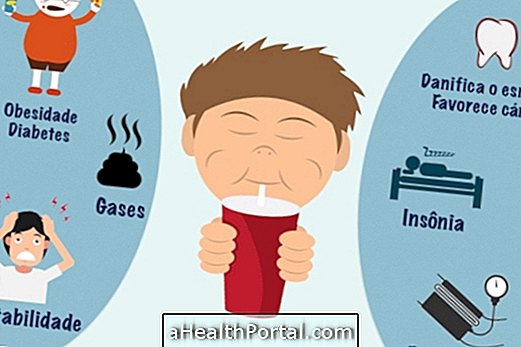Loneliness, which is the feeling of being alone, is usually understood to be something negative because it can generate feelings of sadness, change in well-being and increase the chances of developing stress, depression or anxiety. However, being alone can also bring many benefits such as increased creativity and more focus on day-to-day activities.
Social withdrawal can be both out of shyness and the desire to be alone. Introspective people prefer to be alone because they can relax their minds and thus have a better understanding of their emotions, focus and creativity.
Being alone may not often be a choice, but it is important to have at least a moment with yourself so that there is understanding of one's own emotions and wants and thus taking advantage of moments of solitude.

Key Benefits of Being Alone
For solitude to have benefits, the person needs to understand the situation and make it worth the introspective moment. So the benefits of staying alone are:
1. Increased creativity
Creativity is about acting and thinking wisely and in a useful way, that is, being alone stimulates the mind to create various possibilities of performing a certain task or solving a problem. This creativity does not suffer from any external thought or judgment, it is something inside that allows a better understanding of the world, of the people and of itself.
2. More focus
When you are alone, the brain tends to relax and focus on really important things, as there are no distractions such as people, traffic, radio or television. In this way, the person becomes more productive, able to perform tasks more easily and with more certainty than he is doing.
In addition, being only allows reflection on certain situations or people, which allows the person to better understand the feelings of others, for example.
3. Ripening
Solitude is important for the maturing process, because when you are alone there are no judgments, that is, there is no need to worry about what is done or spoken. This creates a sense of trust, independence and emotional growth, which can improve relationships with others.
4. Self-knowledge
Being only allows the person to think and evaluate their attitudes, desires and thoughts and get to know better, that is, can perceive what bothers you and why, why you have thought about something and why you act determined way. Thus a person can connect with himself, establish his principles and act accordingly.
5. Freedom
Freedom means making decisions and engaging in activities without the approval of another person. It is doing what you want whenever you want, without worrying about whether other people will do or what they feel and feel good about it.
Signs of who prefers to be alone
People who prefer to be alone usually have characteristics such as:
- Preference for quiet environments;
- They do not usually talk much, only what is necessary;
- Few bonds of friendship, however long lasting;
- Social relations tend to be deeper;
- They feel uncomfortable in environments with many people;
- They do not like them to mess with their things;
- Attachment to material things;
- Usually hear more.
Although they prefer to be alone, people who are considered antisocial also feel good and can interact when they are close to other people.
When loneliness can be negative
Loneliness can be negative when the person feels abandoned by everyone, which can lead to changes in pressure and weight, increased chance of dependence on alcohol or medication, and increased irritability. See what are the 8 consequences of loneliness for health.
Loneliness may also favor the appearance of some symptoms such as lack of willingness to perform daily activities, lack of appetite and sadness all the time, which can be a sign of depression, being indicated to go to the psychiatrist or psychologist. Find out what are the symptoms that indicate depression.






















